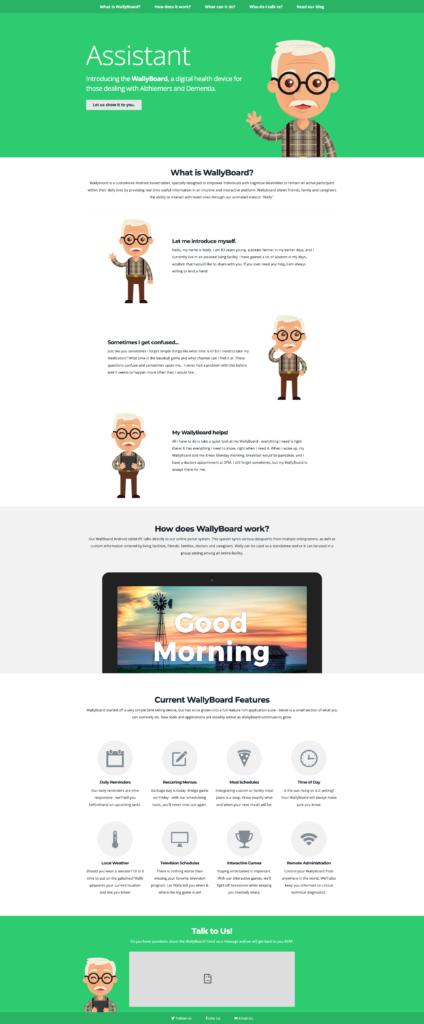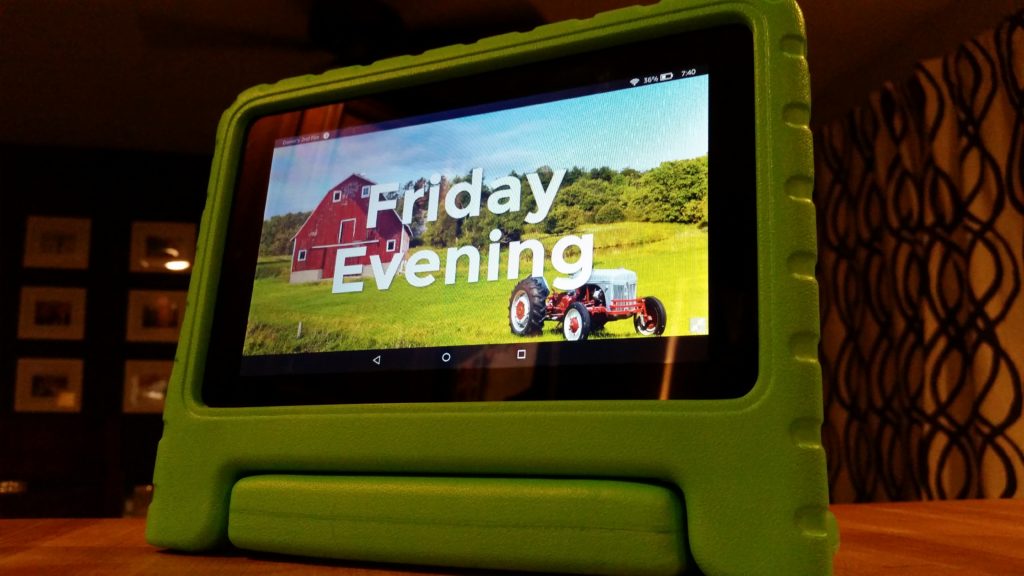For most of his life, Wally farmed sweet potatoes. A soft spoken man with a grand presence about him. He was my wife’s grandfather and one hell of a guy. When Wally entered a senior living facility, like most – he started losing track of daily things. What time of the day was it? Did I take my medicine? And most importantly to him, what channel played the western shows he loved so much? For most, this is just part of aging and technology is not geared toward the elderly. So, I had to step in.
Piggybacking off the success of the Amazon Alexa, which at the time had just come out – I decided that I was going to build Wally a digital assistant. Something that blended into his surroundings, something that didn’t require him to interact with, something different – something geared to his generation and condition. Hence the “Wally Board” was created.

Purposely built for family and care facilities to control remotely, Wally (the device, not the man) was built using cheap Chinese Android tablets that could be bought at cost. A native Android application would put the device in kiosk mode and display the content using the web-view which was programmed and controlled through a portal built on Meteor.js. Users were able to build slide decks with custom information for the intended recipient. Calendars, meal plans and sport schedules with local channels could also be automatically added – Wally (the man, not the device) never missed a St. Louis Cardinals game in his life.
The device would automatically show the day and time and the weather with customized backgrounds. The original version was built into a picture frame, but as more residence at his facility saw his board – the demand for a portable version was created and I added a child’s foam tablet case. Residents would carry their Wally around the halls to help the remember what was for lunch or simply what time is was. The large display and ease of use was a massive helping hand for a lot of people.
Since the cognitive abilities of the users ranged, I would routinely get requests for more interactive functions. It started with simple games such as Memory and Solitaire but in 2017 a baby giraffe named April took the internet by storm with a 24 hour live camera. Giraffe fever his the assisted living home and a live feed was added to Wally – soon after that live cameras of nature, beaches and outer space made their way to Wally, a feature that provided hours of enjoyment for their users.
Wally only saw regional success, while there were asks from other care facilities to implement the program – there wasn’t enough manpower to get the job done without taking time away from my responsibilities at work and at home. It was a wonderful learning experience for me but more importantly, it helped the quality of life for the people who used it, so for me I consider this project an enormous success because of that.



